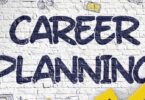Leadership Assessment quiz for students, managers, and entrepreneurs
Self-awareness skills do not include the ability to:
(a) Recognize the weak and strong sides of one’s behavior.
(b) Recognize the weak and strong sides of one’s abilities.
(c) Recognize the emotions of others.
(d) Recognize things which cannot be changed, and accept them
____ leader does not have any trust and confidence in subordinates.
(a) Benevolent
(b) Exploitative
(c) Participative
(d) Democratic
Criticism or lack of recognition from their leader as unpleasant or punishing
(a) Legitimate power
(b) Coercive power
(c) Referent power
(d) Reward Power
Related: Aristotle’s questions and answers
Recognition of ‘self’ and identifying our strengths and weaknesses, desires and dislikes.
(a) Self-awareness
(b) Empathy
(c) Critical thinking
(d) Creative thinking
The Least Preferred Co-worker (LPC) model of Leadership was developed by
(a) Martin Evans
(b) Robert House
(c) Fred Fielder
(d) Whitton
What is the difference between Vroom’s theory of motivation and Maslow’s?
(a) Maslow’s theory is based on Reinforcement of Vroom’s needs
(b) Maslow’s theory is based on behavior, and Vroom’s theory is based on cognition.
(c) Maslow’s theory is based on needs & Vroom’s on valence
Related: Advertisement questions and answers
Identify an example that is not an ability to resist peer pressure:
(a) Maintain your own beliefs about when to become sexually active
(b) Refuse alcohol or drugs, even if others do not
(c) Decide to remain faithful to one partner, no matter what others say
(d) Denying a mistake of yours to peers
__ is an individual’s ability to appreciate the strengths and weaknesses of one’s character.
(a) Self-Efficacy
(b) Self Esteem
(c) Self-awareness
(d) Self-Regulation
Self-awareness skills do not include the ability to:
(a) Recognize the weak and strong sides of one’s behavior.
(b) Recognize the weak and strong sides of one’s abilities.
(c) Recognize the emotions of others.
(d) Recognize things which cannot be changed, and accept them
__ is a combination of knowledge, skills, and appropriate motives that an individual must possess to perform a given task.
(a) persistence
(b) initiative
(c) competency
(d) creativity
Life skills balance three areas: knowledge, ___ and abilities.
(a) Aptitude
(b) Confidence
(c) Attitude
(d) Skills
Recognition of ‘self’ and identifying our strengths and weaknesses, desires and dislikes.
(a) Self-awareness
(b) Empathy
(c) Critical thinking
(d) Creative thinking
Related: MCQs on Capital Budgeting
The goal of the ______ approach is to promote healthy, friendly behavior.
(a) Life skills
(b) Job skills
(c) Personal skills
(d) Functioning skills
___ is the ability to understand, consider, and appreciate other peoples’ circumstances, problems, and feelings.
(a) Empathy
(b) Coping
(c) Interpersonal Skill
(d) Sympathy
____ is the ability to identify, cope, and find solutions to challenging situations.
(a) Problem solving
(b) Coping Skill
(c) Critical thinking
(d) Decision making
The capacity to take repeated and different actions to overcome obstacles is called __
(a) persistence
(b) initiative
(c) competency
(d) creativity
__ are ways we learn to deal with various stressors.
(a) Coping skills
(b) Empathy
(c) Critical thinking
(d) Decision making
Related: DBMS quiz questions
A / an __ is a tendency on the part of an individual to respond to a new problem in the same manner that he or she has used earlier to solve a problem.
(a) mental set
(b) aptitude
(c) skill
(d) Ability
According to Mintzberg, the leader of an organization performs __________.
(a) An Interpersonal role
(b) An Informational role
(c) A Decisional role
(d) All the Above
A specific step-by-step procedure is followed for solving particular problems.
(a) Heuristics
(b) Means-end-analysis
(c) Algorithms
(d) Syllogism
One among them is a step in solving the problem.
(a) Analyze the solution
(b) Getting feedback
(c) Evaluating the final solution
(d) Generate Potential Solutions
Related: Dividend policy MCQs with answers
A sudden flash of solution is known as ___, similar to an ‘aha eureka’ experience.
(a) Illumination
(b) Preparation
(c) Incubation
(d) Verification
__ means everyone agrees or can live with the agreement.
(a) Consensus
(b) Conflict
(c) Solution
(d) Happiness
Which leadership theory suggests that management style should adapt itself to changing circumstances?
(a) Contingency theory
(b) Delegation theory
(c) Autocratic theory
(d) Participatory theory
During ___ stage of creativity, some ideas interfering with the solution will tend to fade.
(a) Illumination
(b) Preparation
(c) Incubation
(d) Verification
“Laissez faire” is otherwise known as
(a) free rein
(b) Participative
(c) Democratic
(d) Authoritarian
Related: questions related to Entrepreneurship
___ is a process in which the individual generates an original, unusual, and productive solution to a problem.
(a) Critical Thinking
(b) Divergent Thinking
(c) Creative Thinking
(d) Abstract Thinking
A behavior change or behavior development approach is designed to address a balance of three areas: knowledge, attitude, and skills.
(a) Life skills
(b) Job skills
(c) Personal skills
(d) Functioning skills
According to the situational leadership approach, the style that denotes a high-task and a low-relationship style is
(a) Selling style
(b) Delegating style
(c) Participating style
(d) Telling style
____is the way an individual feels about her/himself and believes others to feel.
(a) Self-Efficacy
(b) Self Esteem
(c) Self-awareness
(d) Self-Regulation
__ is also called the “rule of thumb.”
(a) Heuristics
(b) Means-end-analysis
(c) Algorithms
(d) Syllogism
Related: mcq questions on MS Excel
The individual is free to go for any possible rules or ideas to reach the solution:
(a) Heuristics
(b) Means-end-analysis
(c) Algorithms
(d) Syllogism
Criticism or lack of recognition from their leader as unpleasant or punishing
(a) Legitimate power
(b) Coercive power
(c) Referent power
(d) Reward Power
Leadership can ___ subordinates to help the organization achieve its goals.
(a) Motivate
(b) Communicate
(c) Direct
The act of choosing between two or more courses of action.
(a) Self-awareness
(b) Empathy
(c) Critical thinking
(d) Decision making
One among them is not Core Critical Thinking Skills.
(a) Interpretation
(b) analysis
(c) Self-regulation
(d) Self-esteem
Related: Financial Management MCQs
Appropriate order of four stages of Creative thinking
(a) Illumination, Incubation, Verification & Preparation
(b) Verification, Incubation Illumination & Preparation
(c) Preparation, Incubation Illumination & Verification
(d) Preparation, Illumination, Incubation & Verification
The ability to make clear decisions on the merits of a case is called __ Skill.
(a) communication
(b) decision-making
(c) project development
(d) management
If a trait theory of Leadership were true, then all leaders would possess _______
(a) Charisma
(b) the same traits
(c) Different traits
(d) Seven traits
The path-goal model of Leadership was introduced by
(a) Martin Evans & Robert House
(b) Fred Fielder
(c) Whetton
(d) Cameron
Leaders who inspire followers to transcend their self-interests for the good of the organization and can have a profound and extraordinary effect on followers are_____ leaders.
(a) Transactional
(b) Transformational
(c) Democratic
(d) Autocratic
Related: test on Microsoft word
Which leadership style tends to centralize authority and make unilateral decisions?
(a) cultural style
(b) autocratic style
(c) democratic style
Because leading is one of the four essential managerial functions, _____ leaders.
(a) all managers are
(b) all managers should be
(c) some managers are
(d) some managers should be
Which of the following is not a contingency theory of Leadership?
(a) LPC theory
(b) Path-Goal theory
(c) Vroom-Yetton-Jago theory
(d) Job centered Leadership
Tannenbaum and Schmidt’s continuum studies suggest that managers should move toward_____ leadership styles.
(a) manager-centered
(b) task-centered
(c) employee-centered
(d) quality centered
Which one of the following is/are leadership theories?
(a) Trait theory
(b) Behavior theory
(c) Contingency theory
(d) All of these
Related: Human Rights Quiz
_____ is an individual’s ability to appreciate the strengths and weaknesses of one’s character.
(a) Self-Efficacy
(b) Self Esteem
(c) Self-awareness
(d) Self-Regulation
When a group gives some of its leadership positions to the members of another group, it is
(a) Contracting
(b) Co-opting
(c) Coalition
(d) Competition
The technique in which a junior board of executives discusses current problems and recommends alternatives is known as __
(a) Understudy
(b) Multiple management
(c) Project assignment
(d) Committee assignment
If the followers are able and unwilling, then the leader must use the
(a) Authoritarian style
(b) Participative style
(c) Situational style
(d) Strategic style






